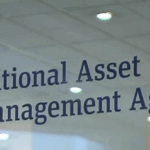Emmanuel School in Derby, the Branch Christian School in Yorkshire, and the King’s School in Hampshire have joined forces with concerned parents to challenge the UK government’s proposed Value Added Tax (VAT) on school fees. The claimants argue that the tax discriminates against faith-based schools and families, potentially making Christian education unaffordable and threatening the viability of many institutions.
In a letter addressed to the government, the schools and parents assert that the VAT imposition breaches human rights laws and fails to adhere to legal standards. They describe the decision to impose VAT on education—historically exempt from such taxes in the UK—as unprecedented and unjust. Their legal team contends that this policy disproportionately affects Christian schools, which typically operate on tighter budgets and charge lower fees compared to larger independent schools.
The claimants further argue that the VAT policy infringes upon anti-discrimination rights outlined in the European Convention on Human Rights, which is integrated into UK law through the Human Rights Act 1998. Caroline Santer, headteacher at the King’s School, criticized the government’s proposal as “ill thought out,” emphasizing that families who opt for faith-based education often forego other luxuries, including holidays and extracurricular activities, to afford tuition.
Parents like Stephen White voiced concerns that the new tax could force them to resort to homeschooling their children, as they are unwilling to enroll them in secular state schools. “It’s an impossible situation,” White said. “We want our children to have a Christian education, but this tax could make that impossible.”
Andrea Williams, chief executive of the Christian Legal Centre, which is supporting the legal challenge, echoed these sentiments. She warned that the VAT charge would make independent faith-based schooling unaffordable for many families and could lead to the closure of smaller faith-based schools.
This legal challenge arises amid broader criticism of the VAT policy from education unions and private school associations, which have urged Chancellor Rachel Reeves to postpone the tax’s implementation scheduled for January. Despite the mounting pressure, the government remains steadfast in its commitment to the tax, asserting it will generate £1.5 billion to bolster state education and hire 6,500 new teachers.
The situation reflects a growing concern regarding the implications of the VAT on school fees for faith-based and smaller independent schools. The Treasury has been contacted for comment but has yet to respond to the unfolding controversy. As the legal challenge progresses, the future of Christian education in the UK hangs in the balance.









